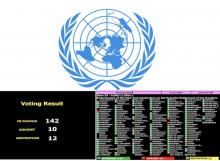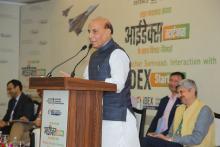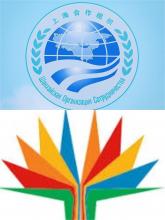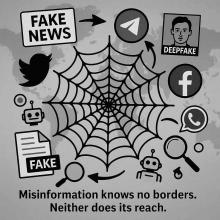-

Since its inception in 1901, the Nobel Peace Prize has primarily recognised contributions to four broad areas: arms control and disarmament, peace negotiations, the advancement of democracy and human rights, and efforts to build a more orderly and peaceful international system. In the 21st century, the Nobel Committee has also expanded its scope to include initiatives addressing climate change and environmental threats, viewing them as integral to global peace and stability.
-

India’s recent humanitarian intervention in Sri Lanka following Cyclone Ditwah once again underlined the growing centrality of the Indian Air Force (IAF) in regional disaster response. In November 2024, the IAF deployed IL-76 and C-130J transport aircraft to evacuate 335 stranded Indian nationals from Colombo while simultaneously delivering emergency relief supplies.
-

Has the 30th edition of the UN-sponsored climate summit, COP30, been delivered as initially expected? Indeed, trust in the Paris Agreement has been maintained and partly fulfilled. Confidence in multilateralism remains strong despite the absence of the second-largest emitter of Greenhouse Gases (GHG), the US. However, the divisions among coalition member groups within COP remain as sharp as they have been in 30 years of climate negotiations.
-

I grew up in Guwahati (Assam), where questions of identity were never theoretical. They surfaced in school registers, land records, police verifications, and anxious family conversations. Some people carried documents with them like talismans. Others lived in fear that a single missing paper could erase their place in the only country they had ever known. Long before I understood the politics of migration, I witnessed its emotional cost.
-

On September 12, 2025, 142 nations voted in favor of a two-state solution, 10 against, and 12 abstained — within 24 hours of the Israeli prime minister declaring that Palestine would never be a state. Major countries, including Saudi Arabia, France, and India, have endorsed the resolution, acknowledging Palestinian suffering. This raises a critical question: Will the adoption of the two-state resolution change the Israel–Palestine conflict, or will the cycle of violence continue?
-

Recently, during the conference titled “Raksha Navachar Samvaad: Interaction with iDEX Startups,” held ahead of the National Conference on Defence Innovation at Vigyan Bhawan in New Delhi on October 7, Defence Minister Rajnath Singh stated that the nature of warfare is rapidly evolving. He noted that future conflicts will be shaped by artificial intelligence (AI), autonomous systems, drones, quantum computing, and directed-energy weapons. Singh urged innovators and startups to pioneer cutting-edge defence technologies and make India a global leader in innovation.
-

Against the backdrop of ineffectiveness of the UN in diffusing West Asia and Eurasia conflicts, failure to adopt a global pact on plastic pollution, and over and above all, the rise of unilateral trade protectionism, the China-led Shanghai Cooperation Organisation (SCO) has concluded its two-day (August 31 - September 1) high-profile 25th Summit in Tianjin, China.
-

The debate over free expression on social media today straddles politics, technology, and civil liberties. When Elon Musk completed his $44 billion acquisition of Twitter on October 27–28, 2022, he declared his ambition to transform the platform into a global forum for candid discussion. One of his earliest and most controversial actions was restoring the account of former U.S. President Donald Trump, who had been permanently banned in January 2021 following the Capitol riots.
-

In 2022, United Nations Secretary-General António Guterres launched the ‘Early Warning for All’ (EW4ALL) initiative, aiming to provide universal protection against hydro-meteorological, climatological, and related environmental hazards by 2027 (WMO, 2022). This initiative has advanced the global agenda on anticipatory action by emphasizing the need for user-centric early warning systems, thereby enhancing human security.
-

The May 2025 India-Pakistan conflict offered a sobering demonstration of how modern wars are no longer confined to physical battlefields alone. Alongside precision strikes and conventional military operations, both countries engaged in a fierce struggle for control over public perception, media narratives, and psychological advantage. The widespread use of misinformation and disinformation across platforms such as X (formerly Twitter), Telegram, Facebook, WhatsApp, and YouTube transformed the conflict into a full-spectrum hybrid war.
Paxton ported to drupal by DropThemes.in